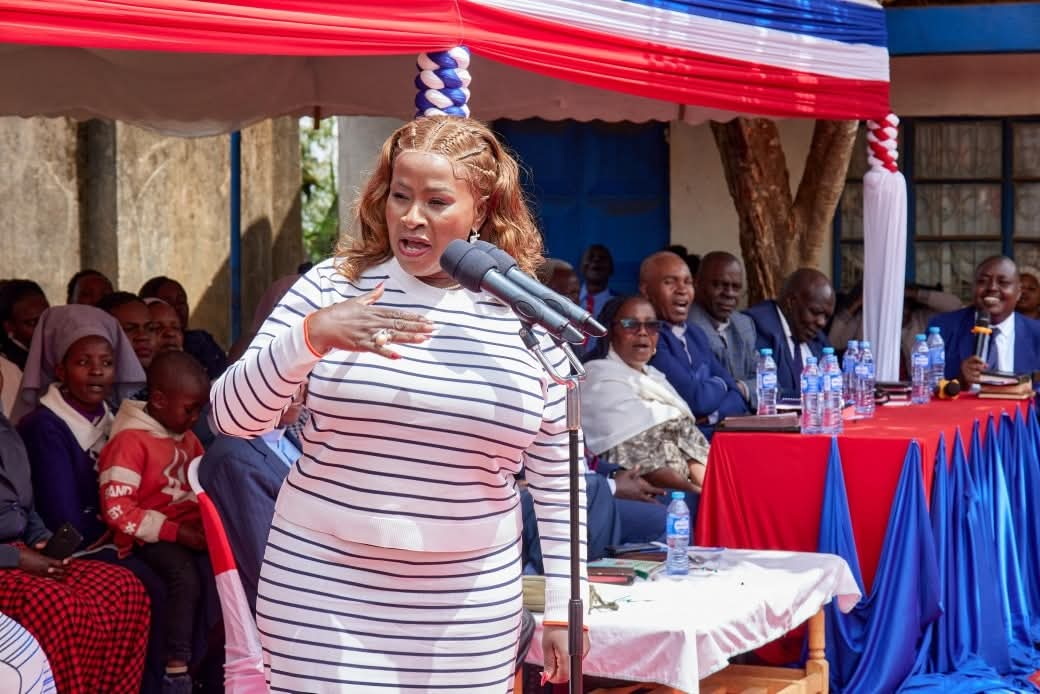 Machakos Governor Wavinya Ndeti at Redeemed Gospel Church in Tala.
Machakos Governor Wavinya Ndeti at Redeemed Gospel Church in Tala.
By Andrew Mbuva
Machakos Governor Wavinya Ndeti has raised a strong and emotional alarm over the rising frustration and hopelessness among Kenya’s youth, urging both the national government and leaders across the board to prioritize real, transformative empowerment at the grassroots.
Speaking on Sunday at Redeemed Gospel Church in Tala, the Governor delivered a passionate address centered on the plight of young people, condemning the recent surge in youth-related violence and calling for a return to the value of life and human dignity.
“Our young people are not just in urban centres. They’re in wards, in villages, and they are looking for opportunity,” she said. “As leaders, we must ask ourselves: what are we doing to change their story?”
Governor Wavinya reflected on her earlier role as Assistant Minister for Youth Affairs and Sports under the late President Mwai Kibaki, crediting his administration for taking intentional steps to empower young people, particularly through vocational training under the National Youth Service.
“President Kibaki knew not every young person would make it to university, but he ensured no one was left behind,” she recalled. “That’s the kind of deliberate investment we need again.”
The Governor expressed deep concern over growing unemployment and restlessness among the youth, warning that failure to address their plight could lead to further societal instability.
She highlighted strides made by her administration in Machakos, where 1,000 youth have successfully completed vocational training under a county-led initiative. She announced that in the coming weeks, the county will provide these graduates with startup kits—including salon and carpentry tools—to help them kickstart their own businesses.
“With these tools, they can earn a living, support their families, and begin to build a future with dignity,” she noted.
Wavinya urged the national government to devolve more resources to the counties, arguing that the power to effect real change lies at the grassroots level.
“Empower the counties,” she said. “With adequate funding and proper use, we can support our youth, restore their hope, and reduce unrest. These young people aren’t the problem—they’re simply looking for someone to believe in them.”
In a rallying call to the Church, she asked faith leaders to remain courageous and truthful in guiding the nation’s moral conscience.
“Let the Church lead with truth. Even when it’s uncomfortable. Even if it’s me—tell me the truth. Our nation doesn’t need more noise. It needs direction.”
Concluding her remarks, Governor Wavinya challenged fellow leaders to prioritize unity and action over politics.
“It’s time to tone down the rhetoric, lower the political temperature, and come together to build a future that works—especially for our young people.”